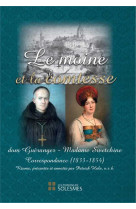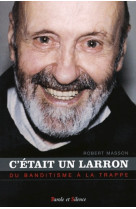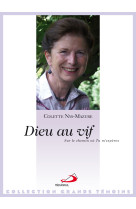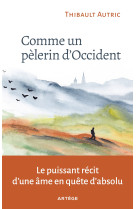Alphonse gratry (1805-1872)
Olivier prat
Oratorien français dont l'influence marqua les milieux catholiques du XIXe siècle, Alphonse Gratry, après une crise d'incroyance, retrouve la foi à vingt ans. Reçu à l'École polytechnique, il abandonne toutefois ses études scientifiques pour étudier la théologie à Strasbourg. Accueilli dans le brillant groupe d'intellectuels catholiques qui se réunissait autour de l'abbé Louis Bautain et de Mlle Humann, il est ordonné prêtre en 1832. Revenu à Paris en 1841, il est d'abord directeur du collège Stanislas, où il emploie le jeune Frédéric Ozanam, puis aumônier de l'École normale supérieure (1846-1851), où son influence est considérable sur les jeunes catholiques. En 1852, aidé par deux autres prêtres — l'abbé Pierre Pétetot, curé de Saint Roch à Paris, et le chanoine Hyacinthe de Valroger — il entreprend de restaurer l'Oratoire de France, mais, il se brouille rapidement avec ses premiers confrères et s'écarte de cette fondation. En 1861, il publie « Les Sources. Conseils pour la direction de l'esprit », ouvrage qui a sans doute été l'un des livres de spiritualité les plus lus jusqu'à la Seconde Guerre mondiale. Professeur de théologie morale à la Sorbonne, il est élu, en 1867, à l'Académie française. Proche du catholicisme libéral, vicaire général de Mgr Dupanloup, évêque d'Orléans, il se prononce, en 1870, contre l'infaillibilité pontificale avant de se soumettre publiquement à la décision conciliaire. Blâmé par le supérieur de l'Oratoire pour son adhésion à la Ligue internationale de la Paix puis pour sa participation au Congrès de la paix universelle en 1867, il quitte l'Oratoire en août 1870 et meurt à Montreux (Suisse) en 1872. Quelque peu oublié aujourd'hui, ce philosophe qui influença Laberthonnière, mais aussi les catholiques sociaux comme Marc Sangnier, Marius Gonin et Denys Cochin et dont l'engagement pacifiste inspira de nombreux activistes et intellectuels, mérite qu'on s'intéresse à lui. Marginal ou précurseur ? Telle est la question à laquelle les études ici rassemblées tentent de répondre.
--
A French Oratorian whose influence marked the Catholic milieux of the 19th century, Alphonse Gratry, after a crisis of faith, returned to the Church when he was twenty. Accepted into the École Polytechnique, he nevertheless abandoned his scientific studies to study theology at Strasbourg. Welcomed into the brilliant group of Catholic intellectuals who gravitated around Father Louis Bautain and Mlle Humann, he was ordained a priest in 1832. Returning to Paris in 1841, he was first director of the Collège Stanislas, where he employed the young Frédéric Ozanam then chaplain of the École Normale Supérieure (1846-1851), where he had a considerable influence on the young Catholics. In 1852, with the assistance of two other priests — Father Pierre Pétetot, parish priest of Saint Roch in Paris, and Canon Hyacinthe de Valroger — he undertook to restore the Oratoire de France but soon fell out with his first fellow members and withdrew from the foundation. In 1861, he published ‘Les Sources. Conseils pour la direction de l'esprit', a work which was undoubtedly one of the most widely read books on spirituality up till the Second World War. A professor of moral theology at the Sorbonne, he was elected to the Académie française in1867. Close to liberal Catholicism, as vicar-general to Mgr Dupanloup, the bishop of Orléans, he took a stance against papal infallibility in 1870, before publicly subjecting himself to the Council's decision. Reproved by his superior at the Oratory for being a member of the International League for Peace, then for his participation in the International Peace Congress in 1867, he left the Oratory in August1870 and died at Montreux (Switzerland) in 1872. Somewhat forgotten today, this philosopher who influenced Laberthonnière, but also social Catholics such as Marc Sangnier, Marius Gonin and Denys Cochin, and whose pacifist commitment inspired countless activists and intellectuals, merits closer investigation. An outsider or a trail-blazer? That is what the studies assembled here attempt to elucidate.









